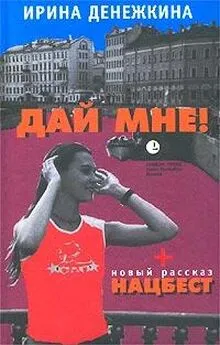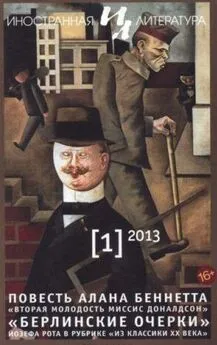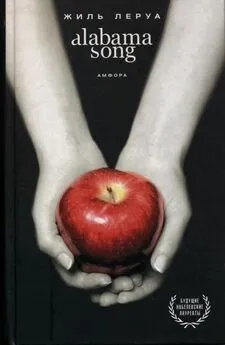Toni Morrison - Song of Solomon
- Название:Song of Solomon
- Автор:
- Жанр:
- Издательство:неизвестно
- Год:неизвестен
- ISBN:нет данных
- Рейтинг:
- Избранное:Добавить в избранное
-
Отзывы:
-
Ваша оценка:
Toni Morrison - Song of Solomon краткое содержание
Song of Solomon - читать онлайн бесплатно полную версию (весь текст целиком)
Интервал:
Закладка:
It was nice and gay there for a while. The men joined in trying to collect the scraps before the snow soaked through them—snatching them from a gust of wind or plucking them delicately from the snow. And the very young children couldn’t make up their minds whether to watch the man circled in blue on the roof or the bits of red flashing around on the ground. Their dilemma was solved when a woman suddenly burst into song. The singer, standing at the back of the crowd, was as poorly dressed as the doctor’s daughter was well dressed. The latter had on a neat gray coat with the traditional pregnant-woman bow at her navel, a black cloche, and a pair of four-button ladies’ galoshes. The singing woman wore a knitted navy cap pulled far down over her forehead. She had wrapped herself up in an old quilt instead of a winter coat. Her head cocked to one side, her eyes fixed on Mr. Robert Smith, she sang in a powerful contralto:
O Sugarman done fly away
Sugarman done gone
Sugarman cut across the sky
Sugarman gone home….
A few of the half a hundred or so people gathered there nudged each other and sniggered. Others listened as though it were the helpful and defining piano music in a silent movie. They stood this way for some time, none of them crying out to Mr. Smith, all of them preoccupied with one or the other of the minor events about them, until the hospital people came.
They had been watching from the windows—at first with mild curiosity, then, as the crowd seemed to swell to the very walls of the hospital, they watched with apprehension. They wondered if one of those things that racial-uplift groups were always organizing was taking place. But when they saw neither placards nor speakers, they ventured outside into the cold: white-coated surgeons, dark-jacketed business and personnel clerks, and three nurses in starched jumpers.
The sight of Mr. Smith and his wide blue wings transfixed them for a few seconds, as did the woman’s singing and the roses strewn about. Some of them thought briefly that this was probably some form of worship. Philadelphia, where Father Divine reigned, wasn’t all that far away. Perhaps the young girls holding baskets of flowers were two of his virgins. But the laughter of a gold-toothed man brought them back to their senses. They stopped daydreaming and swiftly got down to business, giving orders. Their shouts and bustling caused great confusion where before there had been only a few men and some girls playing with pieces of velvet and a woman singing.
One of the nurses, hoping to bring some efficiency into the disorder, searched the faces around her until she saw a stout woman who looked as though she might move the earth if she wanted to.
“You,” she said, moving toward the stout woman. “Are these your children?”
The stout woman turned her head slowly, her eyebrows lifted at the carelessness of the address. Then, seeing where the voice came from, she lowered her brows and veiled her eyes.
“Ma’am?”
“Send one around back to the emergency office. Tell him to tell the guard to get over here quick. That boy there can go. That one.” She pointed to a cat-eyed boy about five or six years old.
The stout woman slid her eyes down the nurse’s finger and looked at the child she was pointing to.
“Guitar, ma’am.”
“What?”
“Guitar.”
The nurse gazed at the stout woman as though she had spoken Welsh. Then she closed her mouth, looked again at the cat-eyed boy, and lacing her fingers, spoke her next words very slowly to him.
“Listen. Go around to the back of the hospital to the guard’s office. It will say ‘Emergency Admissions’ on the door. A-D-M-I-S-I-O-N-S. But the guard will be there. Tell him to get over here—on the double. Move now. Move!” She unlaced her fingers and made scooping motions with her hands, the palms pushing against the wintry air.
A man in a brown suit came toward her, puffing little white clouds of breath. “Fire truck’s on its way. Get back inside. You’ll freeze to death.”
The nurse nodded.
“You left out a s, ma’am,” the boy said. The North was new to him and he had just begun to learn he could speak up to white people. But she’d already gone, rubbing her arms against the cold.
“Granny, she left out as.”
“And a ‘please.’”
“You reckon he’ll jump?”
“A nutwagon do anything.”
“Who is he?”
“Collects insurance. A nutwagon.”
“Who is that lady singing?”
“That, baby, is the very last thing in pea-time.” But she smiled when she looked at the singing woman, so the cat-eyed boy listened to the musical performance with at least as much interest as he devoted to the man flapping his wings on top of the hospital.
The crowd was beginning to be a little nervous now that the law was being called in. They each knew Mr. Smith. He came to their houses twice a month to collect one dollar and sixty-eight cents and write down on a little yellow card both the date and their eighty-four cents a week payment. They were always half a month or so behind, and talked endlessly to him about paying ahead—after they had a preliminary discussion about what he was doing back so soon anyway.
“You back in here already? Look like I just got rid of you.”
“I’m tired of seeing your face. Really tired.”
“I knew it. Soon’s I get two dimes back to back, here you come. More regular than the reaper. Do Hoover know about you?”
They kidded him, abused him, told their children to tell him they were out or sick or gone to Pittsburgh. But they held on to those little yellow cards as though they meant something—laid them gently in the shoe box along with the rent receipts, marriage licenses, and expired factory identification badges. Mr. Smith smiled through it all, managing to keep his eyes focused almost the whole time on his customers’ feet. He wore a business suit for his work, but his house was no better than theirs. He never had a woman that any of them knew about and said nothing in church but an occasional “Amen.” He never beat anybody up and he wasn’t seen after dark, so they thought he was probably a nice man. But he was heavily associated with illness and death, neither of which was distinguishable from the brown picture of the North Carolina Mutual Life Building on the back of their yellow cards. Jumping from the roof of Mercy was the most interesting thing he had done. None of them had suspected he had it in him. Just goes to show, they murmured to each other, you never really do know about people.
The singing woman quieted down and, humming the tune, walked through the crowd toward the rose-petal lady, who was still cradling her stomach.
“You should make yourself warm,” she whispered to her, touching her lightly on the elbow. “A little bird’ll be here with the morning.”
“Oh?” said the rose-petal lady. “Tomorrow morning?”
“That’s the only morning coming.”
“It can’t be,” the rose-petal lady said. “It’s too soon.”
“No it ain’t. Right on time.”
The women were looking deep into each other’s eyes when a loud roar went up from the crowd—a kind of wavy oo sound. Mr. Smith had lost his balance for a second, and was trying gallantly to hold on to a triangle of wood that jutted from the cupola. Immediately the singing woman began again:
O Sugarman done fly
O Sugarman done gone…
Downtown the firemen pulled on their greatcoats, but when they arrived at Mercy, Mr. Smith had seen the rose petals, heard the music, and leaped on into the air.
The next day a colored baby was born inside Mercy for the first time. Mr. Smith’s blue silk wings must have left their mark, because when the little boy discovered, at four, the same thing Mr. Smith had learned earlier—that only birds and airplanes could fly—he lost all interest in himself. To have to live without that single gift saddened him and left his imagination so bereft that he appeared dull even to the women who did not hate his mother. The ones who did, who accepted her invitations to tea and envied the doctor’s big dark house of twelve rooms and the green sedan, called him “peculiar.” The others, who knew that the house was more prison than palace, and that the Dodge sedan was for Sunday drives only, felt sorry for Ruth Foster and her dry daughters, and called her son “deep.” Even mysterious.
“Did he come with a caul?”
“You should have dried it and made him some tea from it to drink. If you don’t he’ll see ghosts.”
“You believe that?”
“I don’t, but that’s what the old people say.”
“Well, he’s a deep one anyway. Look at his eyes.”
And they pried pieces of baked-too-fast sunshine cake from the roofs of their mouths and looked once more into the boy’s eyes. He met their gaze as best he could until, after a pleading glance toward his mother, he was allowed to leave the room.
It took some planning to walk out of the parlor, his back washed with the hum of their voices, open the heavy double doors leading to the dining room, slip up the stairs past all those bedrooms, and not arouse the attention of Lena and Corinthians sitting like big baby dolls before a table heaped with scraps of red velvet. His sisters made roses in the afternoon. Bright, lifeless roses that lay in peck baskets for months until the specialty buyer at Gerhardt’s sent Freddie the janitor over to tell the girls that they could use another gross. If he did manage to slip by his sisters and avoid their casual malice, he knelt in his room at the window sill and wondered again and again why he had to stay level on the ground. The quiet that suffused the doctor’s house then, broken only by the murmur of the women eating sunshine cake, was only that: quiet. It was not peaceful, for it was preceded by and would soon be terminated by the presence of Macon Dead.
Solid, rumbling, likely to erupt without prior notice, Macon kept each member of his family awkward with fear. His hatred of his wife glittered and sparked in every word he spoke to her. The disappointment he felt in his daughters sifted down on them like ash, dulling their buttery complexions and choking the lilt out of what should have been girlish voices. Under the frozen heat of his glance they tripped over doorsills and dropped the salt cellar into the yolks of their poached eggs. The way he mangled their grace, wit, and self-esteem was the single excitement of their days. Without the tension and drama he ignited, they might not have known what to do with themselves. In his absence his daughters bent their necks over blood-red squares of velvet and waited eagerly for any hint of him, and his wife, Ruth, began her days stunned into stillness by her husband’s contempt and ended them wholly animated by it.
When she closed the door behind her afternoon guests, and let the quiet smile die from her lips, she began the preparation of food her husband found impossible to eat. She did not try to make her meals nauseating; she simply didn’t know how not to. She would notice that the sunshine cake was too haggled to put before him and decide on a rennet dessert. But the grinding of the veal and beef for a meat loaf took so long she not only forgot the pork, settling for bacon drippings poured over the meat, she had no time to make a dessert at all. Hurriedly, then, she began to set the table. As she unfolded the white linen and let it billow over the fine mahogany table, she would look once more at the large water mark. She never set the table or passed through the dining room without looking at it. Like a lighthouse keeper drawn to his window to gaze once again at the sea, or a prisoner automatically searching out the sun as he steps into the yard for his hour of exercise, Ruth looked for the water mark several times during the day. She knew it was there, would always be there, but she needed to confirm its presence. Like the keeper of the lighthouse and the prisoner, she regarded it as a mooring, a checkpoint, some stable visual object that assured her that the world was still there; that this was life and not a dream. That she was alive somewhere, inside, which she acknowledged to be true only because a thing she knew intimately was out there, outside herself.
Читать дальшеИнтервал:
Закладка:








